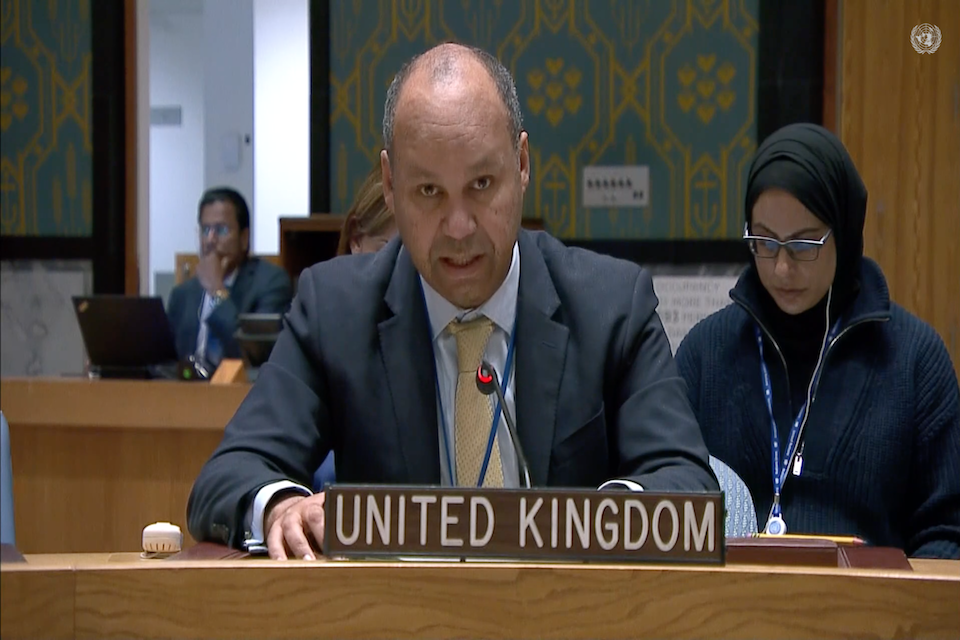Ensuring long term stability in the Central African Republic
Statement by Ambassador James Kariuki at the Security Council briefing on the situation in the Central African Republic

Thank you, President.
The United Kingdom welcomes the renewal of MINUSCA’s mandate and thanks France for its efforts as penholder to reconcile differing views of Council members.
Delegations made difficult compromises.
The United Kingdom is disappointed by the loss of agreed Responsibility to Protect language. But we maintain that the Government of the Central African Republic remains primarily responsible for the protection of all civilians from genocide, war crimes, ethnic cleansing and crimes against humanity, and that this issue will remain a key factor in future conversations.
This mandate renewal takes place in a difficult political and security context, and MINUSCA itself is facing significant challenges. But the Mission retains a key role in helping to build long-term peace in the Central African Republic. And while we recognise the views expressed by our A3 partners and welcome recent overall reductions in violations of the Status of Forces Agreement, we remain deeply concerned by night flight restrictions imposed by the government.
Such restrictions limit MINUSCA’s ability to implement its mandate and jeopardise the safety and security of peacekeepers and of civilians. We support new language in the mandate to address this critical issue. And we call on the authorities to ensure MINUSCA’s freedom of movement, with unhindered and immediate access throughout the territory of the Central African Republic, including by air and at night, as set out in the Mission’s Status of Forces Agreement.
President, with this mandate MINUSCA can continue to provide effective support to long-term stability in the country. It is now up to the government to deliver on their stated commitments: to protect civilians and human rights; to take definitive steps on the peace agreement; and to uphold MINUSCA’s freedom of movement.
Thank you.